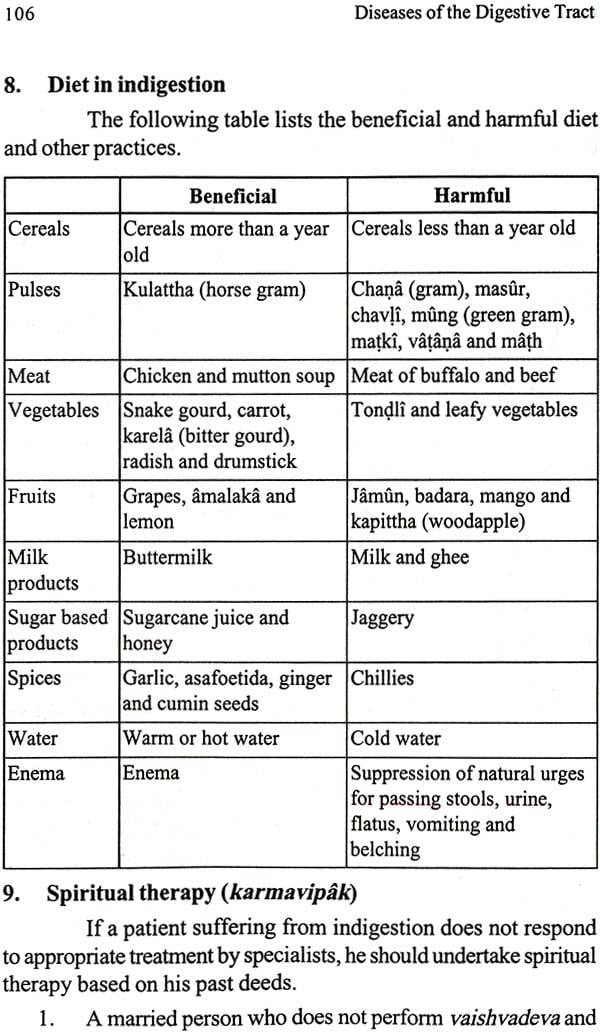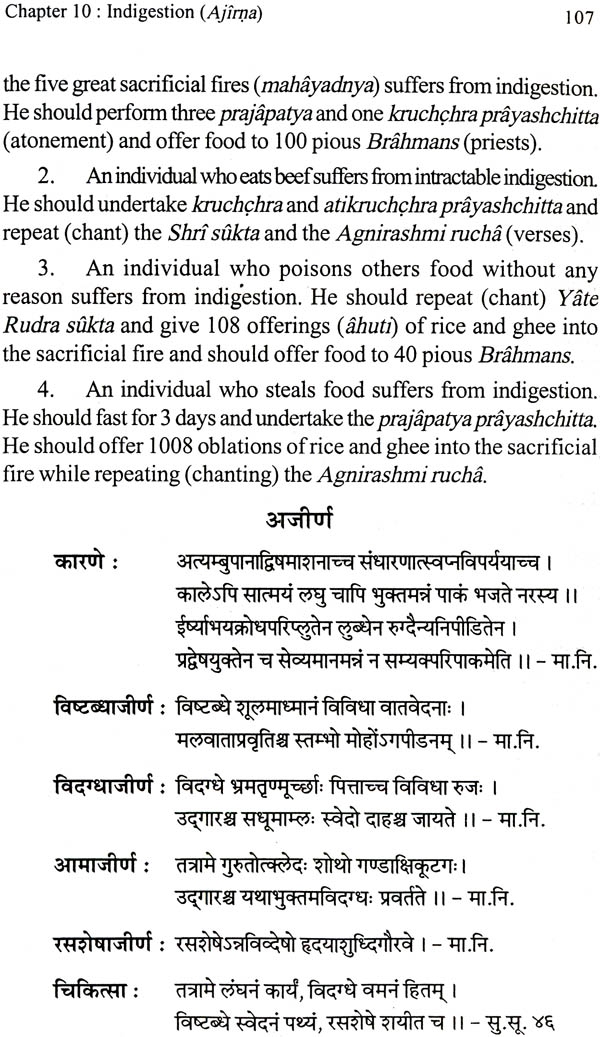
Diseases Of Digestive Tract (Modern, Ayurvedic and Spiritual Concept)
Book Specification
| Item Code: | NAD923 |
| Author: | Dr+V+B+Athavale & Dr.Kamlesh V.Athavale |
| Publisher: | Sanatan Bharatiya Sanskriti Sanstha |
| Language: | english |
| Edition: | 2002 |
| ISBN: | 8180490106 |
| Pages: | 192 |
| Cover: | Paperback |
| Other Details | 8.5 inch X 5.5 inch |
| Weight | 220 gm |
Book Description
Dr. Vasant Balaji Athavale, M.D. (Paediatrics), D.C.H., F.A.M.S., Vaidyachärya is a renowned paediatrician and an eminent author. He stood first in D.C.H. and in M.D. (Paediatrics). He was the founder of the Paediatric Department of the Lokmânya Tilak Municipal Hospital, Sion established in 1959 and was Head of the Department and Professor of Paediatrics for 30 years from 1959-1990. He was the editor of the Paediatric Clinics of India from 1971 to 1990. He was offered Unicef fellowship in 1965 for his paper read at the ‘International Paediatric Conference’ held in Tokyo. He was the chairman of the workshop on ‘Herbal Medicines for Health’ held in Bangkok in 1981.
Dr. Athavale holds the highest degree in Ayurveda, Vaidyacharya’. He has written several books on Ayurveda and has practically updated the entire Ayurveda through his books. These books in English and Maráthi are written in a lucid language and shall therefore be useful to Ayurvedic physicians as well as the common man. He was awarded the international award for the ‘Best author of Ayurvedic books’ in 1996. He was honoured with a ‘Lifetime Achievement Award’ by the Ráhr1ya Shikshan Mandal at the international seminar on Ayurveda in 2001.
Dr. Athavale has also written several books for parents which serve as an excellent guide for bringing up children.
Dr. Athavale accords the credit of all his achievements to his parents and teachers.
The second author of this book, Dr. Kamlesh Athavale is the son of Dr. V.B. Athavale. He passed his M.D. (Paediatrics), D.N.B.E. and M.N.A.M.S. with a brilliant academic record. He is a dedicated paediatrician and has completed his fellowship in Neonatology from U.S.A.
He has made significant contributions in writing these books.
We eat food in the gross form. Digestion consists of reducing the large sized food items into very small molecules which can be absorbed into the blood and digested by cells of the body. The process of digestion starts outside the body. Grinding and cooking constitute the initial stages of digestion. Chewing and digestion of food with the help of digestive juices constitute digestion of food inside the body.
After digestion, food is converted into amino acids, fatty acids, glycerine and glucose. These molecules are further digested by body cells.
Ayurveda describes the qualities of food as hot, cold, heavy, light, etc. The scientific meaning of these is described well in this book. Forcing a child to eat food is the main cause of digestive I disturbances in children while eating food in excess is the main cause of digestive disturbances in adults, e.g. gastroenteritis, peptic ulcer.
The diseases of the gastrointestinal tract mainly loss of appetite, peptic ulcer, gastroenteritis, malabsorption, indigestion, dysentery, pain in the abdomen, constipation, anal fissure, piles and worm infestation are described in detail in this book. The Ayurvedic approach and treatment of these diseases are given in detail here. Factors which affect the digestive tract and digestive power are elucidated in detail. How to maintain the digestive tract healthy and prevent diseases of the digestive tract are given in detail in this book. Ayurveda refers to digestive power as ‘digestive fire’ and considers ‘fire’ as the deity of the digestive tract. This book will prove useful to doctors, vaidyas as well as medical students. All should study this book and follow the rules and restrictions to keep their digestive tract healthy.
We pray unto Agnidevata (deity of Fire) to bestow up everyone a long, happy, healthy, prosperous and benevolent life.
| 1 | Digestion of food and digestive power | 20 |
| 2 | Qualities of food | 23 |
| 3 | Appetite | 27 |
| 4 | Stomach - Vomiting | 41 |
| 5 | Pepticulcer - Acidity (Amlapitta) | 56 |
| 6 | Functions Of Small Intestine, large Intestine And Pancreas | 61 |
| 7 | Gastroenteritis | 63 |
| 8 | Diarrhoea (Atisâra) - Ayurvedic Concept | 75 |
| 9 | Malabsorption Syndrome (Grahani) | 89 |
| 10 | Indigestion (Ajirna) | 99 |
| 11 | Dysentery (Pravâhikâ)? | 108 |
| 12 | Abdominal Pain | 114 |
| 13 | Constipation | 127 |
| 14 | Anal Fissure (Parikartikâ) | 132 |
| 15 | Piles (arsha) | 134 |
| 16 | Worms (krumiroga) | 149 |
| 17 | Conclusion | 152 |
| 18 | Preparation Of Ayurvedic Recipes | 154 |
| Bibliography | 177 |







